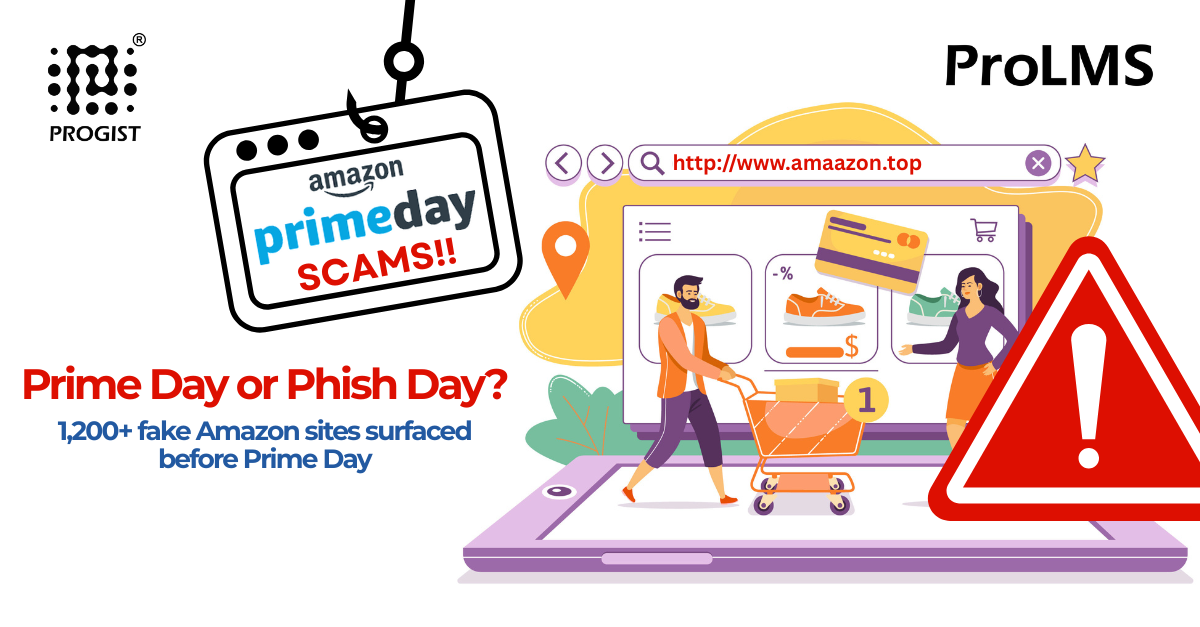As Amazon’s Prime Day approaches, it’s not just shoppers preparing their carts, cybercriminals are setting up traps. According to a Research, over 1,230 new phishing websites impersonating Amazon were registered in just the first week of June 2025. This aligns with a growing global trend: attackers leveraging high-traffic events to increase the effectiveness of phishing lures.
These fake domains are not amateur operations. They often replicate Amazon’s look and feel, use HTTPS, and adopt urgent messaging, such as “Account suspended” or “Refund error”, to manipulate users into clicking, logging in, or entering sensitive information. What’s especially concerning is that many of these domains appear weeks before Prime Day, quietly indexing themselves and gaining legitimacy in search engines and email filters.
The Rise of Event-Driven Phishing
What makes Prime Day a fertile ground for attackers is contextual timing. Just like with tax season, government grant announcements, or airline sales, scammers capitalize on moments when user attention is already fixated on one brand or activity.
From a cybersecurity lens, this isn’t new – but the volume, coordination, and camouflage have grown exponentially. More domains, more realistic replicas, more advanced hosting techniques. Many fake sites even use CAPTCHA pages or loading animations to enhance credibility.
This shift forces organizations and users alike to think beyond traditional spam filters and signature-based threat detection. The question isn’t whether an attack will happen, it’s whether people are ready when it does.
The Role of Simulation and Learning in Responding to This Trend
At Progist, we often emphasize two foundational layers when dealing with such threats: realistic exposure and targeted education. That’s where Prophish and ProLMS come into the picture, not as tools, but as frameworks to study and shape human cyber behavior.
- Prophish enables simulation of phishing attacks modelled on real campaigns, like these fake Amazon domains. These aren’t just random link clicks; they’re designed to test how users respond to urgency, brand familiarity, and contextual cues. Simulating such attacks before peak seasons like Prime Day gives organizations visibility into behavioural vulnerabilities.
- ProLMS, our learning system, helps close those gaps through adaptive training. For instance, if simulations reveal a pattern, such as users trusting emails from e-commerce brands during sales events, ProLMS can deliver short, timely modules focused specifically on brand impersonation, domain spoofing recognition, or behavioural nudges to reduce impulsive clicks.
Together, these systems don’t just reduce clicks, they build cognitive resistance. The aim is to embed recognition patterns deep enough that even when a phishing site is well-designed, users still pause and reassess.
Why This Moment Matters
The 1,200 fake Amazon domains aren’t just a statistic. They represent how attackers have evolved, from sending generic phishing emails to crafting hyper-targeted, event-based lures that slip past technological defences by exploiting human trust.
For organizations and individuals alike, the key takeaway isn’t panic, it’s preparation. The more we understand phishing as a psychological and behavioural challenge, the more effective our defences become.
And in a world where fake sites launch faster than we can blacklist them, training minds may be our most reliable firewall.
Final Thoughts
Phishing threats are no longer random, they’re calculated, seasonal, and increasingly personalized. As attackers mirror the pace and polish of real brands, the line between legitimate and fraudulent blurs dangerously fast. That’s why preparation must go beyond policies and firewalls.
If you’re part of an organization, consider how often your teams encounter lookalike domains or too-good-to-be-true emails, especially during events like Prime Day. Now ask: Are they equipped to spot the difference?
Start by running a simulation. Measure the response. Let the data guide your next step.
Because awareness isn’t just a compliance requirement anymore… it’s a survival skill.
Have questions or want to explore how your team can stay ahead of phishing trends?
Reach out to us at info@progist.in or call us at +91-9820116312 / +91-9819256263
We’re here to help you build smarter, safer, more resilient teams.

